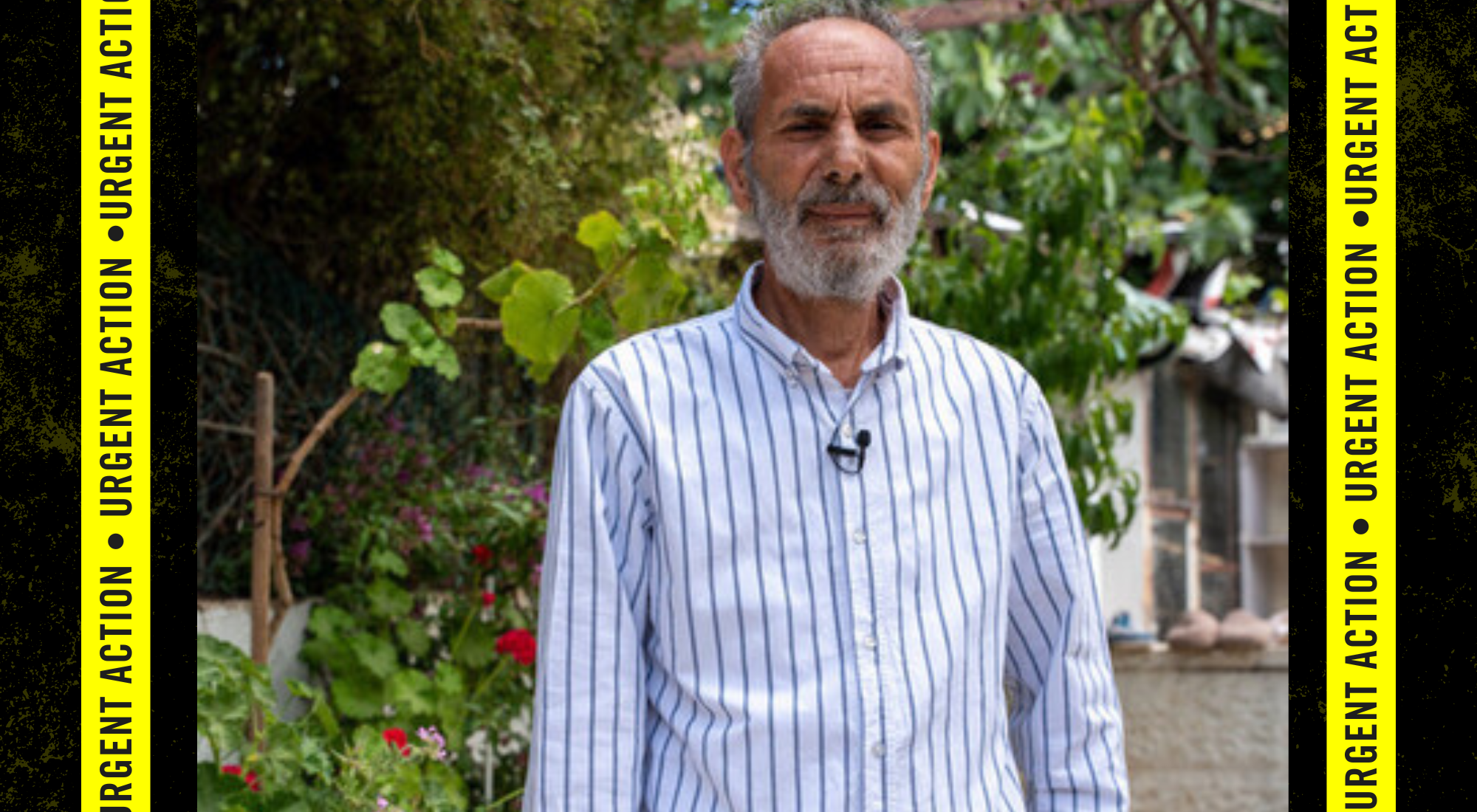Saleh Diab and his family are facing forced eviction from their home in Sheikh Jarrah, a neighborhood in occupied East Jerusalem. In February 2025, an Israeli District Court rejected their appeal to stay in their home.
A settler group called Nachalat Shimon is behind this push to evict them. This is part of a wider pattern of forcing Palestinian families out of Sheikh Jarrah.
There is still a small window of hope. In May 2025, the Israeli Supreme Court agreed to hear the family’s final appeal. This is their last legal chance to stop the eviction and remain in their home.
The Israeli Supreme Court is expected to issue a decision regarding the request for leave to appeal no sooner than the second half of July.
Here’s what you can do:
Write to Israel’s Foreign Minister urging him to:
- Immediately stop the forced eviction of the Diab family from their home in the Sheikh Jarrah neighborhood of East Jerusalem.
- End the ongoing forced displacement of Palestinians from East Jerusalem.
- Ensure that no actions are taken that could amount to the war crime of unlawful transfer or, when done as part of a widespread or systematic attack, the crime against humanity of forcible transfer.
- Guarantee the safety and protection of Saleh Diab and his family from violence, harassment, and attacks by settlers.
Write to:
Gideon Sa’ar
Israel Foreign Minister
9 Yitzhak Rabin Boulevard
Kiryat HaLeom
Jerusalem 9103001
Email: gsaar@knesset.gov.il ; sar@mfa.gov.il
Salutation: Dear Gideon Sa’ar
And copy:
His Excellency Iddo Moed
Ambassador
Embassy of the State of Israel
50 O’Connor Street, Suite 1005
Ottawa, ON K1P 6L2
Tel: (613) 750-7500 Fax: (613) 750-7555
Email: info@ottawa.mfa.gov.il
A longstanding system of discrimination
Since the founding of Israel in 1948, governments have introduced laws and policies that discriminate against Palestinians. These rules are designed to keep Palestinians divided and to give Jewish-Israelis legal and social advantages.
This system has created ongoing inequality, which amounts to apartheid under international law.
In 1967, Israel occupied and illegally annexed East Jerusalem. Since then, it has tried to reduce the number of Palestinians living there. Authorities have done this by expanding settlements, taking land, revoking residency rights, and carrying out forced evictions.
One law, called the 1970 Legal and Administrative Matters Law, lets Jewish-Israelis reclaim property they owned before 1948. But Palestinians who were forced from their homes during the same time have no such right.
For example, Saleh Diab is not allowed to return to his family’s home in the al-Ajami neighborhood of Jaffa, from which they were expelled in 1948.
The Diab family’s legal struggles
Saleh Diab’s extended family of 23 people has been fighting eviction for decades. The pressure has gotten worse since 2009.
A settler group called Nahalat Shimon International is using the 1970 law to try and remove the family from their home.
The family’s case is just one example of the larger effort to force Palestinians out of Sheikh Jarrah and replace them with settlers.
Peaceful resistance and international attention
Since 2009, Saleh Diab has helped organize weekly peaceful protests in Sheikh Jarrah. These demonstrations brought together Palestinians, Israeli allies, and international activists.
In April 2021, protests in Sheikh Jarrah captured global attention. Families like the Diabs called on Palestinians in Jerusalem and beyond to take to the streets.
Amnesty International documented Israel’s harsh response to these peaceful protests. Authorities arrested demonstrators, used excessive force, fired sound and stun grenades, and sprayed foul-smelling “skunk” water at people and their homes.
Thousands of Palestinians across Israel and the Occupied Palestinian Territories protested in solidarity. In many cases, Israeli forces responded with violence, leading to injuries, arrests, and detentions.
Unequal treatment by the courts
Several other families in Sheikh Jarrah like the al-Kurd, Hammad, and Jaouni families, have also faced eviction. But some were able to delay these actions through rulings from the Israeli Supreme Court.
These rulings recognized them as protected tenants until land ownership could be resolved through a legal process known as the Settlement of Land Title (SOLT).
However, the courts treated Saleh Diab’s family differently. They claimed the family was not included in a list made by Jordan in the 1950s, which meant they were denied the same protections.
Even outside the courts, Saleh Diab has remained committed to peaceful resistance. He became a well-known figure in weekly demonstrations, which continued until October 2023 when the war in Gaza began.
Saleh told Amnesty International that settlers still harass and threaten him and his family. He has faced police violence, settler attacks, and constant surveillance but he continues to stand up for his home and his community.
Please take action as soon as possible until December 18, 2025. The UA will be duly updated should there be the need for further action.




























